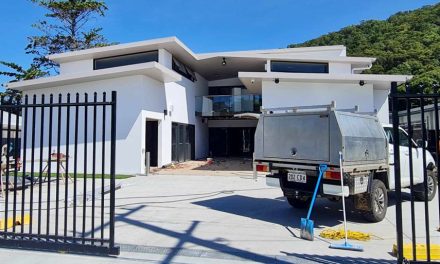This article was originally published in The Australian on 30 August 2023. You can view the original article here.
Back in the 1980s, Yarrabah in far north Queensland had the highest suicide rate in Australia. Our people were losing loved ones too often, too young. I grew up in our family home opposite the church where weekly funeral processions were a dismal and heartbreaking reality.
Our community’s elders decided all those years ago to take matters into their own hands. No government programs were working, and not enough interest was being paid by state or federal governments in the problems assaulting our community.
Our elders formed a health committee to investigate how we could establish a local, community-driven health service. They believed only a community-run health service, designed and run by locals who understood local problems, would help reverse the tragic tide of suicides and entrenched chronic health challenges.
It took nearly a quarter of a century for the state government to listen. Twenty long years. Nothing has moved more slowly in this country than when governments have been asked to make decisions about Aboriginal people. There were five CEOs before me who put the case to government that the health service would work better if it was community-controlled.
Gurriny Yealamucka Health Services finally transitioned from state to community control, and it’s been a tremendous success story. In 2014, it had only 800 clients. Today we have more than 1000 who are seeing clinicians at least once a month. Health checks are rising, and across every age group we have a near 100 per cent success rate with immunisation programs.
Gurriny is the second-largest employer in Yarrabah, with three-quarters of our staff drawn from local mob. Not only have we achieved tremendous health outcomes, but the centre is a cohesive force in the community and a terrific driver of jobs for many locals who would otherwise still be in the Centrelink queues.

Our problem over the years hasn’t come from community. Gurriny is loved and respected; the fantastic outcomes speak for themselves. It’s been securing ongoing funding from governments who traditionally have been deaf to Aboriginal voices and disinterested in a little community so far removed from their power centres of Brisbane and Canberra. To continue to improve health outcomes in our town that has endured so much sorrow and disadvantage, underlying social problems must be addressed. It’s a pressing task as our community becomes stronger.
That’s where a voice to parliament will be so immensely valuable. Policymakers need to know first-hand the problems that arise from overcrowded and poor housing, lack of opportunities, and lack of jobs. Our community leaders have been motivated for many years to tackle these problems; the Yarrabah Leaders’ Forum arose from our united determination to strengthen our community on every level, to make sure our young people can look towards a future and see hope and promise.
Having local people who can directly feed their first-hand experiences into regional representatives that sit on the voice will ensure governments are forced to stop and listen. We are doing our part; we need governments to, also. They need to act with good haste to help communities who are putting their hands up to be part of the solution.
The voice, which can’t be dismantled once in the Constitution, will play a critical role in resolving government slowness to act. It’s important for our communities and all Australians that we have this constitutional change. Twenty years to listen, hear and respond to Indigenous pleas to assist us to manage our own affairs is 20 years too long.
Suzanne Andrews is an Aboriginal woman from the Jaru, Bunuba people of the North Kimberley region who has lived and worked on Gunganghi traditional lands since her early teens. She is chief executive of Gurriny Yealamucka Health Service.
This article was originally published in The Australian on 30 August 2023. You can view the original article here.











